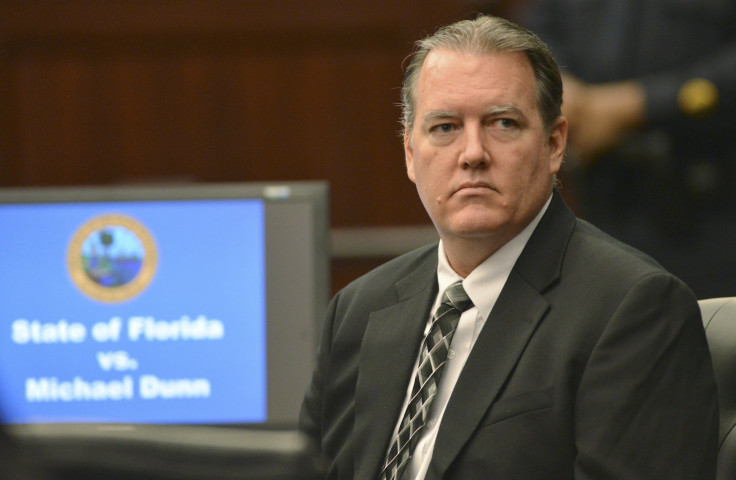Michael Dunn 'Loud Music' Verdict: Mistrial For First-Degree Murder Charge Causes Outrage

Michael David Dunn, 47, of Satellite Beach, Fla.. was found guilty of four out of five charges on Saturday in the trial for the 2012 incident in which he shot and killed then 17-year-old Jordan Davis after an argument over loud music. He was not found guilty of first-degree murder, but faces 60 years in prison for his other convictions.
Florida State Attorney Angela Corey said the state would seek to retry Dunn for first-degree murder.
After more than 30 hours of deliberation Dunn was convicted on three counts of attempted second-degree murder and of one count of firing a deadly missile into a vehicle. Each count of attempted second-degree murder carries a 20-year-minimum sentence.
Circuit Judge Russell Healy declared a mistrial on the first-degree murder count after the jury could not come to a consensus on the charge. He sent the jury back into deliberation after they first said they could not reach a verdict on the first-degree murder charge, but they again emerged without a verdict.
“By law I cannot demand this of you, but I want you to go back into the jury room … If you simply cannot reach a verdict, then return to the courtroom and I will declare this case mistried as to that count and will discharge you with my sincere appreciation for your services.”
The verdict was a surprise for Dunn, who expected his argument of self-defense to clear him of charges. Florida allows for a special hearing for immunity from prosecution under the state's controversial “Stand Your Ground” law, but Dunn did not take that route. He was heard to ask his lawyer, “How is this happening?” as the verdicts were read.
Despite “Stand Your Ground” being a major topic of debate during the 2013 George Zimmerman trial, neither Zimmerman nor Dunn sought immunity under it. Dunn’s lawyer, Cory Strolla, said that he would not have been charged with first-degree murder had it not been for Zimmerman’s deadly shooting of Trayvon Martin in 2012.
Dunn had pulled up next to the teenagers’ SUV at a gas station and asked them to turn down their “ridiculously loud” music. An argument ensued and escalated to a point where Davis opened his door to presumably approach Dunn’s vehicle. That is when Dunn fired 10 shots at Davis and the SUV and left the gas station.
Dunn contested that he saw Davis reach for an object resembling a shotgun and scream “This ****’s going down now!” just prior to the shooting.
Whether or not Davis actually had a shotgun is a disputed detail. Police did not find a gun in the SUV Davis was riding in, but Dunn’s lawyer argued they could have hidden it in the time between the shooting and police arrival. Dunn also never told his fiancée, Rhonda Rouer, who was in the car with him, that he had seen what he thought was a gun.
Dunn also didn’t call the police after the incident, because he says he didn’t know anyone had been hurt in the shooting. He didn’t learn of the teenager’s death until the police were apprehending him the next day.
Dunn says he felt intense remorse after he found out he had killed the teenager. Davis’s father was happy with the verdict and his mother left the courtroom in tears. Following the verdict, Dunn’s lawyer said “everybody lost something on this.”
Dunn is set to be sentenced in late March.
© Copyright IBTimes 2024. All rights reserved.






















